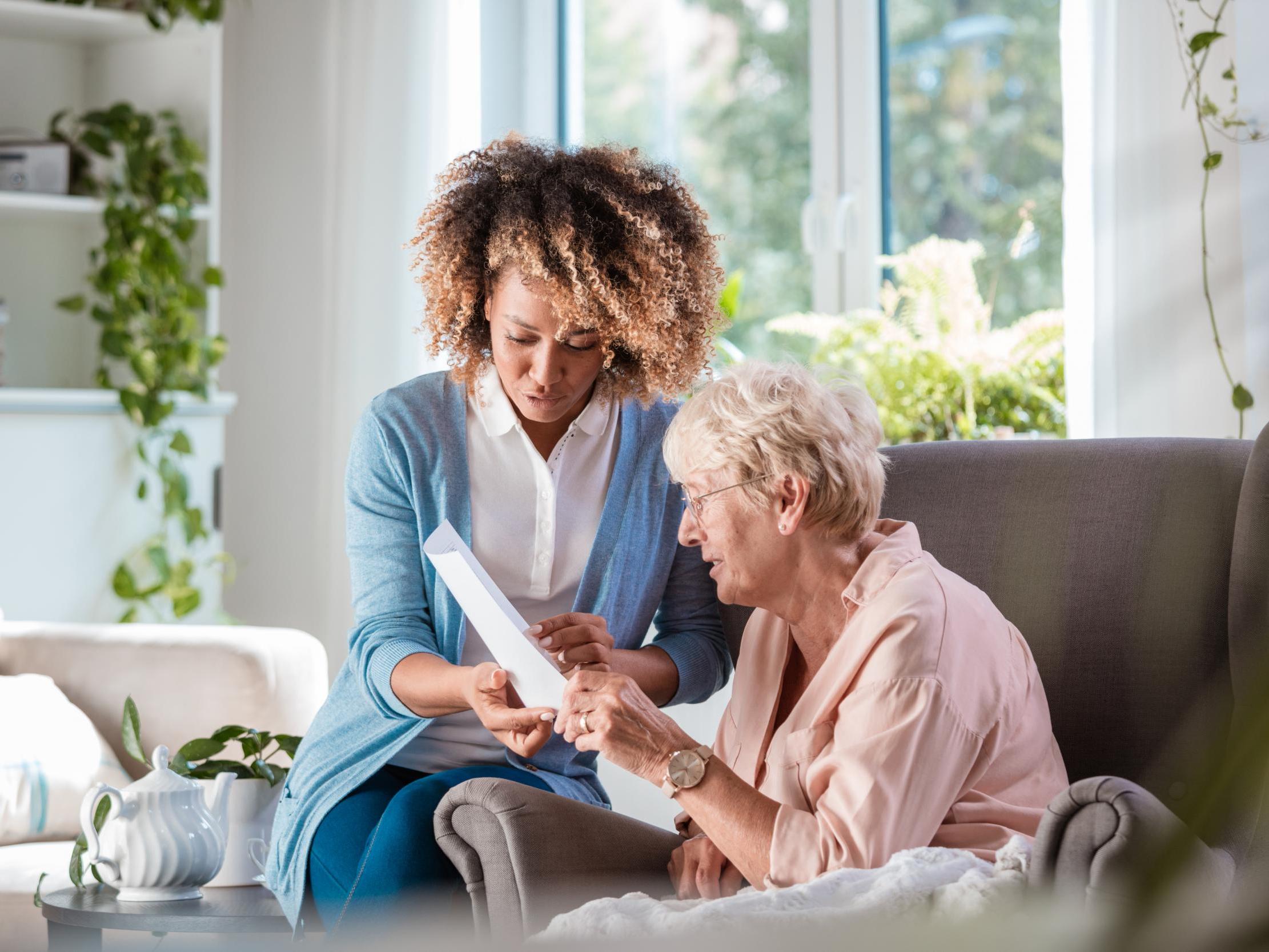Half of women will be carers before they reach 50, study finds
Two thirds of UK adults will become an unpaid carer in their lifetime

Half of women will be carers by the age of 46, which is more than a decade earlier than men who, on average, don’t have caring responsibilities till the age of 57.
Two thirds of UK adults can expect to become an unpaid carer for old, sick or disabled relatives during their lifetime, according to a new report called “Will I Care?” by charity Carers UK.
The findings showed 65 per cent of adults provide unpaid care at some point and women have a 70 per cent chance of becoming a carer versus men at a 60 per cent likelihood.
Helen Walker, chief executive of Carers UK, says in Britain today you are “as likely” to become an unpaid carer as you are to own your own home.
“Despite caring being as common as many life events the public conversation and the private expectations are not matched,” she says.
NHS at 70: Pride and worry as free health service celebrates birthday
Show all 18The researchers at the University of Birmingham and Sheffield analysed data from individuals who had participated in the British Household Panel Survey and Understanding Society social and economic study for more than 15 years between 1991 and 2018.
They found most carers are middle-aged and an estimated 600 people every day give up their paid work in order to fulfill their caring duties.
And among working carers who provide more than 50 hours of care a week, 30 per cent are still holding down a full-time "professional’ job" as well.
A separate 2015 report by Carers UK found carers were doing more than ever to support others, providing care worth £132 billion a year.
Lead report author Professor Sue Yeandle, said: “This is similar to the total cost of our NHS. Carers are thus both the backbone of our health and social care system and provide its ‘life support’.
"Too often carers pay a heavy price for the support they give - financial strain, poorer health, social isolation."
Walker says that if we are to really look at gender inequality in the workplace we need to also understand how care impacts people in a gendered way.
"Our research shows women are disproportionately affected, facing difficult decisions about their loved ones' health, family finances and how best to combine paid work, and care more than a decade earlier than men."
The charity is calling on the next government to commit to delivering long-term investment in social care and give carers a right to five-to-10 days of paid care leave.
The Department for Work and Pensions said the Carer’s Allowance would rise by 1.7 per cent from April 2020 - it has not been subject to the freezes as many other benefits.
Subscribe to Independent Premium to bookmark this article
Want to bookmark your favourite articles and stories to read or reference later? Start your Independent Premium subscription today.

Join our commenting forum
Join thought-provoking conversations, follow other Independent readers and see their replies